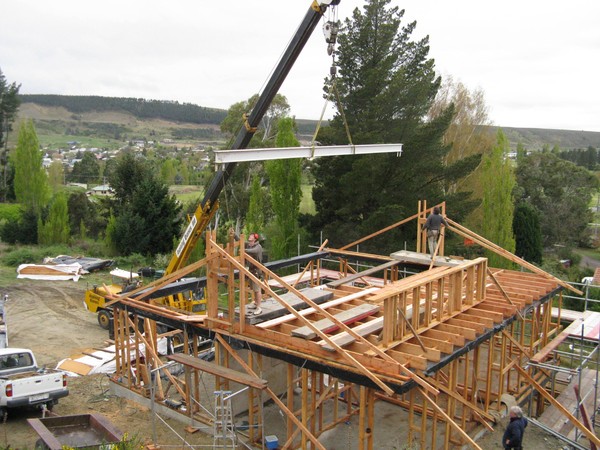There was a total of 37,467 new dwellings consents issued in the August 2020 year, Stats NZ announced today. This was a 5.1% increase on the August 2019 year.
Within those new dwellings, a record 10,063 townhouses, flats, and units were consented – which points to an increase in medium density construction.
It was the first time over 10,000 townhouses, flats, and units were consented since the series began in the early 1990s.
Monthly consents issuance also remains strong. August saw 3,147 consents issued which, when accounting for seasonality, was a small increase of 0.3% from July 2020.
That monthly number did show a slight decline for the third month in a row though, following a big post lockdown surge in May.
However, Stats NZ acting construction indicators manager Dave Adair says the number of new homes consented has remained quite stable over the last three months.
That follows some dramatic movements between March and May when the nation-wide lockdown had the biggest impact, he says.
“The strong consent numbers for new homes in recent months means that there is a relatively large amount of residential building work planned for the future.”
For economists, the latest Stats NZ data also showed that residential consent issuance remains steady and points to ongoing resilience in the construction industry.
ASB senior economist Jane Turner says consents continue to hold up at their pre-Covid trend, although Auckland consents were slightly lower – possibly due to the city’s lockdown 2.0 in mid-August.
“We have been surprised by how well the housing market has performed post-lockdown, and this strength will continue to filter through to strong house building demand over the rest of 2020.
“Furthermore, the economy has fared much better than expected through the Covid-19 pandemic, with consumer and housing demand bouncing back stronger and faster than expected.
“The rise in unemployment is likely to be smaller than initially feared and we expect further declines in interest rates will provide continued support for housing.”
Despite this, they do expect housing construction activity to fall over the medium-term, Turner say.
“Population growth is set to slow as a result of Covid-19: net migration is now negative due to border restrictions and a cap on the number of new arrivals from overseas. Slower population growth from weak net migration will reduce house building requirements.”
Westpac senior economist Satish Ranchhod agrees that consent numbers have been much more resilient than expected in the wake of Covid-19.
In fact, except for a brief drop during the Level 4 lockdown, monthly consent issuance has held up at the very strong levels that prevailed prior to the outbreak, he says.
“This points to a solid pipeline of residential building work as we head into the new year. It also bodes well for employment in the construction sector.”
Ranchhod says they expected the Covid related downturn in the economy would be a much larger drag on home building activity and they do expect the strength of construction activity to be challenged by the sharp slowdown in population growth already in train.
“However, while slower population growth and increased economic uncertainty will dampen home building to some degree, it’s now looking like this will only prompt a moderate easing in building as developers wait for more certainty about the outlook.
Westpac is now forecasting that residential construction will drop 10% below its pre-Covid levels over 2021, as compared to the 20% fall previously, he adds.
“That follows very strong growth in recent years and would still leave home building at high levels. (As a comparison, GDP fell by 12% in the June quarter). Low levels of interest rates and positive signs in the housing market are helping to buoy construction activity.”




 Search
Search
